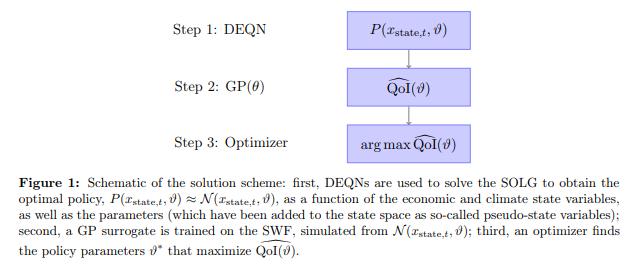
Julian Marcoux
@julian_mrcx
PhDing in economics @heclausanne🇨🇭 I use tools from international macro, trade and spatial econ. to study geoeconomics, dev. and political econ. questions
ID: 1365566792396120066
https://julianmarcoux.github.io/ 27-02-2021 07:38:02
1,1K Tweet
194 Followers
475 Following


📢Here it is! The Call for Papers is out for the 4th Kiel-CEPR Conference on Geoeconomics! Join Pol Antras, Kenneth S Rogoff, Silvana Tenreyro + Beata Javorcik, Nitya Pandalai-Nayar, Ilyana Kuziemko, & more in Paris more in Paris to present your geoeconomics research👉ifw-kiel.de/institute/even… Moritz Schularick






Our report on the effect of unemployment benefit sanctions on job search and re-employment is out. (DE / FR). Joint work with Rafael Lalive, P. Arni, M. Wolf & B. Kaiser Disclaimer for the football fans: the referee on the pic is not representative of my views or opinions in any way

🚨 We're thrilled to host the CEPR International Macroeconomics and Finance Programme Meeting 2025 at Université de Lausanne! Submit your work by 15 June — it’s shaping up to be an exciting event!🌟 #CEPR #Macroeconomics #InternationalFinance #HECLausanne #CallForPapers HEC Lausanne

Why did Britain industrialize? It's complicated! Fortunately, Joachim Voth, Alex & I wrote a paper: now you can also read a summary here: broadstreet.blog/p/where-have-a…


Coming back to Japan and my post yesterday about my work with Gustavo Ventura on Japan. Let’s try a simple exercise. Take Japan’s demographics as given (more on this below). Now, assume GDP per working-age adult (or per hour worked; same result) had grown from 1991 to 2019 at the



🚨New Paper: Using Machine Learning to Compute Constrained Optimal Carbon Tax Rules 🚨(with F. Kübler, O. Surbek). Method to systematically find Pareto-improving policies in stochastic models with het. agents. HEC Lausanne | Department of Economics Enterprise for Society Center Grantham LSE Link: papers.ssrn.com/sol3/papers.cf…




From The Economist today: "How scared should you be of “the China squeeze”? "For a chokehold to be effective, a country must have a near-monopoly on supplying a particular good or service, says Matteo Maggiori of Stanford University. “Sanctioning power is non-linear, which means

Lot's of activity below while I was on a long flight to Korea. Looking forward to delivering together with Jesús Fernández-Villaverde the Lunchtime Plenary on Geoeconomics at the Econometric Society World Congress: eswc2025.org/speakers/02.ht… Here are my slides: …allocation.s3.us-east-2.amazonaws.com/geoecon_plenar… With




